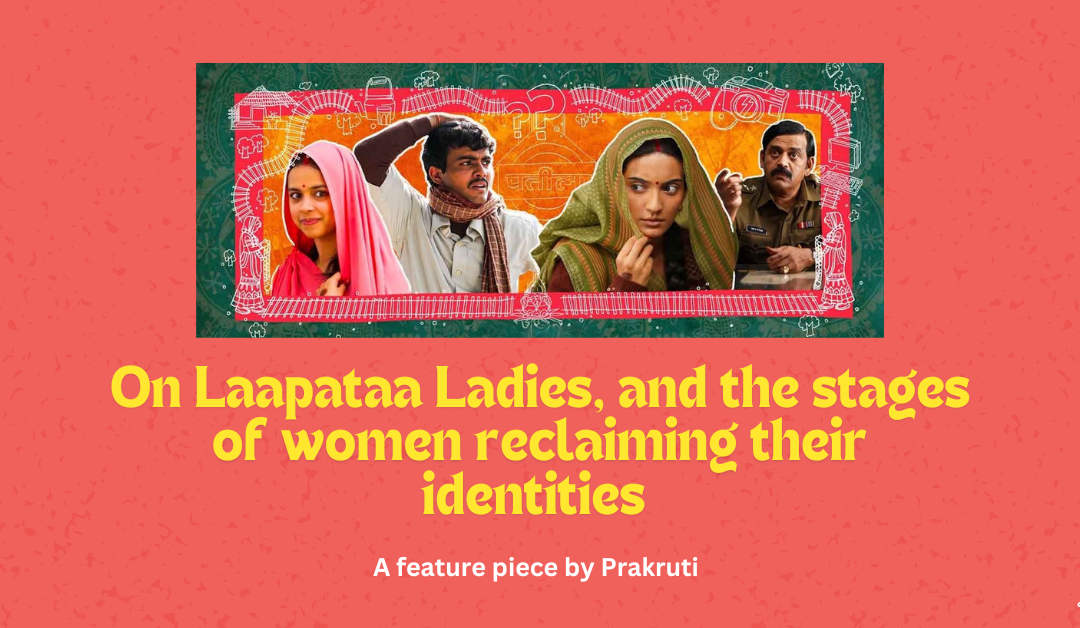Stage 1: Conversations that plant the seed

There is a scene somewhere close to the interval, where Yashodha asks her mother-in-law, “Kya aap aur main saheli ho sakte hain?”. She is prompted to think about this for the first time after seeing the interaction between Jaya and Poonam, giggling away like friends – a relationship that she has not seen women in the family share.
This is a new perspective for Yashodha, who’s only ever seen women be mothers, daughters, sisters-in-law, mothers-in-law. Never friends.
At the start, feminism is nothing but a conversation of possibility, one that even we women tend to dismiss, under the garb of “But some things don’t change.”
So Yashoda laughs this comment away.
Stage 2: Resolving to act

Real change begins when we choose to act, and it takes repeated conversations to lead to a resolution to act, as it happens with Phool.
The more time she spends with Manju Maai, the more she sees the difference between not having an agency and having it, the more she finds value in being able to stand on her own two feet.
In the end, as she is on her way back to her old life, she proclaims that she would not stay at home as her mother and mother’s mother did. She would try and make a living for herself.
Stage 3: Fighting the fight

Women don’t have it easy though, do they? The intent to reclaim your life is one thing, to gather the support of family, friends, and society is entirely something else.
Jaya’s journey is symbolic of that third stage – the fight for your rights, and how literally, a village must come together to help you achieve your dreams.
At her own home, Jaya’s dreams of studying organic farming have been quashed, and she has been married off.
But chance sends her to Surajmukhi instead of her to-be-abusive husband, from where she finds the help and the opportunity to revisit and live her dream again.
Stage 4: World Weariness

Fighting for our rights is. hard. work.
From the day you choose to follow your own path as a woman, you have to explain yourself, justify your actions to everyone in your life, ask repeatedly for basic rights, work twice, thrice, four times harder, and fight a lifelong fight to be seen and respected, which can take a tremendous toll on you.
That world weariness is sadly, often the last stage of feminism. And Manju Maai’s character embodies that tiredness beautifully, though I do not want to glorify her struggle and eventual cynicism.

Laapataa Ladies was a good reminder that agency and empowerment are not reserved for urban women alone. And it broke that journey down, step by step, to really speak to a much larger number of women. And men.
For that, thank you Kiran Rao, Biplab Goswami, Sneha Desai, and Divyanidhi Sharma. You rock.
– Feature piece entry by @Prakruti Maniar

